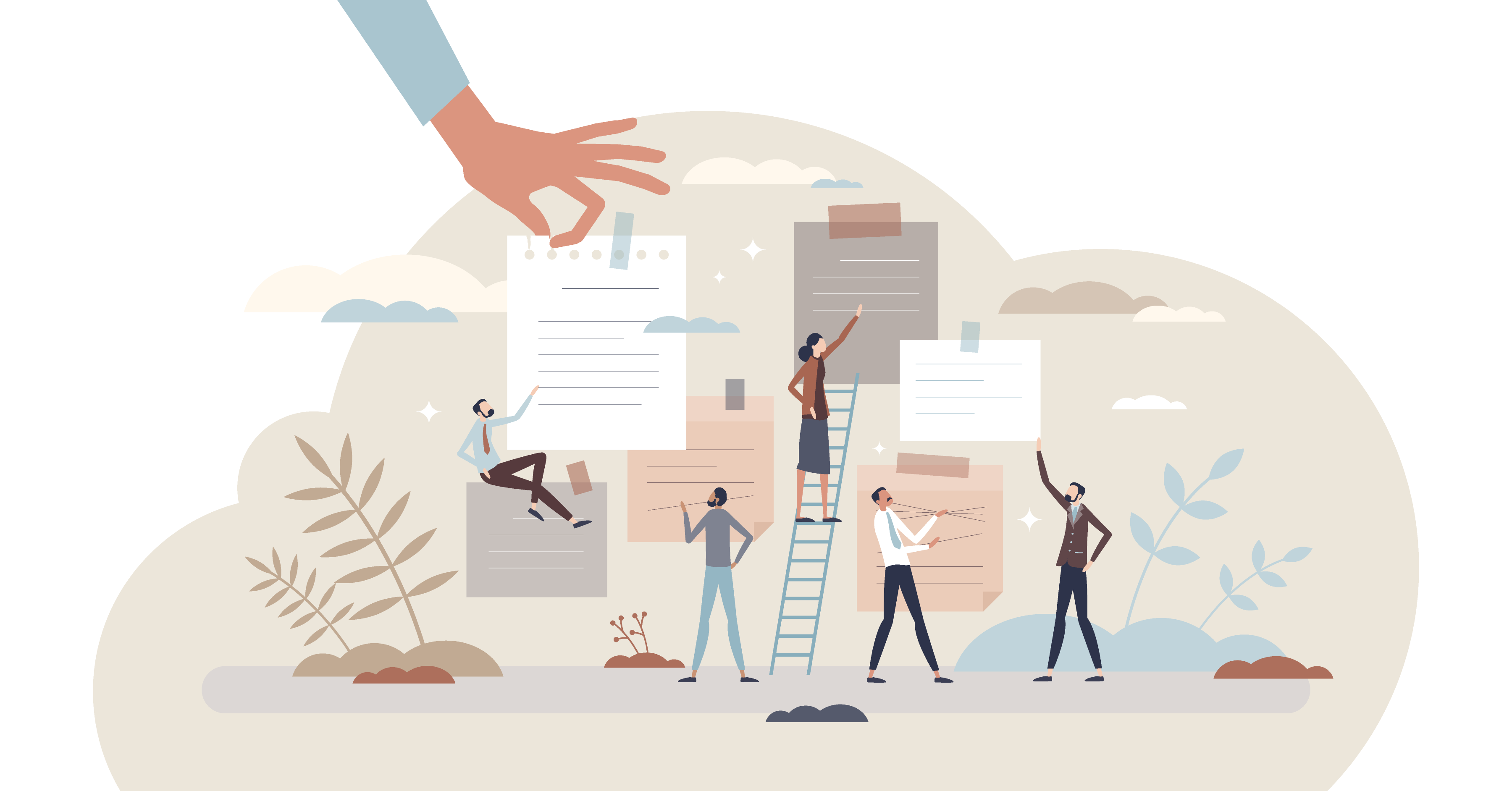Table of Contents
With having a blog all about doing a PhD, you may be wondering why I'm writing an article about reasons not to do a PhD! Well, let me tell you a PhD is not all roses and chocolates. They are tough and you want to be prepared before you embark on a project that will consume, yes consume, at least 3 years of your life. In this post I want to cover some of the things that should make you think twice about whether pursuing an advanced research degree is for you.
Reasons that pursuing a PhD might be a bad idea include; not being interested in the topic, because you're finding it difficult to get a job, you hate reading and writing, and/or the idea of studying one tiny thing for years fills you with dread.
Most of these reasons are not a 'don't do it because of this', but are designed to question and help you make sure you're ready.
This is because, on their own, they might not be strong enough to stop you from doing a PhD, but if you have more than a few of these reasons given below, I would strongly consider looking at other options. For example, going into business after a PhD is not unusual and often encouraged, but depending on what it is you want to do, there may be better opportunities. I mean if you want to go into business as a research analyst, then great, but if you want to start your own company, then something like an MBA may be more appropriate. But the wonderful thing is; that's your decision. These are just my prompts ;)
Part of the inspiration for writing this post, is that the dropout rate for PhDs can be surprisingly high. I wanted to help provide some information to help you make a balanced decision as to whether you are ready. Many reasons for dropping out are complex, but starting with the right reasons can help kick off on the right foot.
Make sure and read my previous post on 10 Great Reasons you Should do a PhD to help you make your decision. This one started out with 10 reasons, but it ended up with 13. I thought that was quite appropriate for the 'don't do' list!
So here we go, here's my list of 13 reasons why doing a PhD may not be for you.
1. You get bored by focusing on one subject area
You'll be studying one small area of research for at least 3 years, probably closer to 5. If you get bored by focusing on something quickly, then a PhD may not be for you. That's not to say that not being able to focus on a task and switching tasks a lot (e.g. with ADHD) is the same thing. But if you lose interest in your major hobbies quickly then make sure you're ready to focus on one thing for a long while.
2. You need structure and consistency imposed by someone else
A PhD is pretty much self taught and self-structured. You'll need to set your own timetables and deadlines to keep on track. Whilst your supervisor may help a little with keeping you on track, it's nothing like when you were at university for your undergraduate, when deadlines and specific tasks were regularly given. If you need this structure, then you may struggle with the freedom permitted by a PhD. Whilst not a reason in itself (I think we all struggle with this to some degree), maybe try and do a PhD with a supervisor who is able to provide you with more structure as part of a current project for example, where deadlines are more likely to exist.
3. Reading and writing are the worst thing ever
Reading previous scientific works and writing up experiments and new ideas form the basis of a PhD. If you really struggle with these, then you'll need to work extra hard. I'm going to be honest, I wasn't really into writing in school and university. It is only post university that I got into writing. Now I can't get enough! I've learnt that it's much easier than trying to say something out loud... You could learn to love it too. However a PhD is not necessarily somewhere you want to rely on finding this out! A PhD will be all the more miserable if reading and writing fill you with dread. It's best not to hate them before you start.
4. You're finding it difficult to get a job
I'm going to be honest, when I left university I fell into this category. I struggled to get a job, so I applied for PhDs. Looking back I'm so, so glad I didn't get any of them. I would have really struggled. Getting 10 years of research experience under my belt and a research MSc was the best thing I could have done. It's helped me out in so many ways. A PhD will not necessarily help you get a job and may actually hinder it. If you're struggling to get a job in academia then of course a PhD will help, but do consider other options before starting. What is it you're really missing skills wise?
5. You're fresh out of an undergraduate
For any undergraduate considering a PhD, I would strongly consider getting some research or other experience before starting a PhD. Of course this can be tricky, but it will set you up with some valuable skills before you start, including life-work balance. I'm not saying not to move straight into a research degree from a taught one; but I know I really valued getting some other experience before starting.
6. Your PI/manager/supervisor says you should do one
Whilst support by a senior academic is incredibly morale boosting, you're the one doing the PhD so it is up to you whether you want to embark on one. They only see what's on the outside and there can be a lot of personal reasons you may not want to do one. That being said, if you already enjoy working with them, then that alone will be a huge help in your PhD. If they are able to see that you have the potential to do one, it could set aside some of the 'am I good enough' and imposter syndrome issues.
7. There is limited wiggle room in your life
This is a tricky one for me to roll with. I fall into this category as I have a young child who demands a lot of my attention. There are times when I need to focus on my work. For example, I needed several weeks to set up a field experiment and I couldn't have done it if my husband hadn't looked after my daughter by himself for almost three weeks. I find it incredibly difficult to switch between 'mummy' and 'PhD' mode. If you have dependents or carer requirements, make sure you have a support network before you start. I would never tell anyone not to pursue their dream of doing a PhD for this reason, but know what you're in for before you start, and have the back up support ready for when you need it.

8. You are not interested in the subject
This is the strongest reason of all for not doing a PhD. If you're not interested in the subject, I would avoid it at all costs. I would say the single most important thing about starting a PhD is that you must be passionate about the subject.
9. You want to go into business
I get that a PhD can be incredibly valuable for a business, but the workings of academia and business are very different. There may be better suited qualifications or experiences that will help you get a job there. This comes back onto point 4. ; what are the skills you really need? If it's research then, yes, a PhD might be the way to go, but if it's work experience or business acumen then you may want to look elsewhere. The reality is that you may go into business, or start your own company after your PhD, as many do, but I suspect that most don't go into a PhD wanting to go into business to start with (unless you are specifically developing a product or doing an industry aligned PhD).
10. You'll struggle too much with your finances
A PhD is not known for being well paid. Whilst the situation is improving, if you have a lot of personal financial commitments that mean you will struggle to pay the bills each month, then consider holding off on a PhD until your situation improves. There is extra funding available for struggling students, but I wouldn't rely on it. A PhD stipend is enough for you to live off and that's about it. If there are dependents involved or you have debts, particularly if you're single, it's likely going to be an uphill challenge. Again I wouldn't tell anyone not to do a PhD because of their financial situation, and it is pretty awful that I have even had to bring up this point, it's more to raise awareness.
11. You don't like rejection and failure
I mean, no one likes rejection and failure, but they are woven into how academia works. Experiments fail, funding is unsuccessful and papers are rejected. It will challenge even the hardest souls. I think this is one of the hardest things for many academics to bear and many leave lose steam or leave because of uncertainty and difficulties in acquiring funding. That being said perseverance pays off; your time will come and practise makes perfect. Just consider how many times the authors James Patterson, Stephen King and John Grisham all faced significant rejection for their first book. It was around 30 publishers each! Now they are some of the best selling authors in the world. Beatrix Potter got rejected so many times, she self published instead! This problem is therefore not necessarily unique to academia. The advantage is that (in the UK at least) you will likely still have a job whether you get funding/published or not (although getting a permanent job in the first place is of course the challenge).
12. You are not sure doing one is the right thing to do
This may seem like an odd one to put on the end. But like the others, if you aren't sure you want to do a PhD and there are other reasons combined with this one, it may be better to put it off for a little while. Once I'd got a permanent job, I stopped applying for a PhD's; a sign I wasn't truly wanting to do one at that time. I started applying again when I was getting frustrated with some aspects of my job. I then changed roles again and I was happier. At that point onwards I was still considering one, but wasn't sure. About 7 years later, I knew I was ready. A PhD has not been a thing 'I've always wanted to do' but is more a result of self-development and awareness and realising that in fact I was ready and able.
13. You are planning on self funding
There is absolutely nothing wrong with self funding a PhD and it deserves its own award! To be honest, I quite fancy doing another PhD, self-funded, when I'm retired! But by then I'll have some cash behind me, an empty nest and the mortgage will be paid (hopefully)! That being said, self funding can be incredibly stressful, which is not what you want whilst trying to navigate a PhD. This all depends on your finances; if you don't have a significant cash backing behind you, then self funding may be very hard. There are very few self-funding students in the sciences, because doing science is expensive, and the two that I did know briefly, dropped out. One option is applying for lots of little pots of money; some students do this and it shows your funding prowess! I absolutely commend you for going through this option, but it will be tough; are you ready?
But only you can decide
There you have it. 13 reasons to question whether now is a good time to do a PhD. I hope that you found these useful prompts to balance out the reasons to do a PhD. Ultimately they are a list to guide you rather than absolute list of reasons not to do a PhD. To be honest I could add more to this list but for fear of it turning into a super negative list about academia, I have not currently added them.
It's all about balance. Only you will know what the right choice is for you. I suspect because you are considering a PhD, you will do your own research.
If you found this helpful and appreciate the minimal approach to advertising, please help support my work by signing up to my newsletter, BrainSTREAM:









Comments